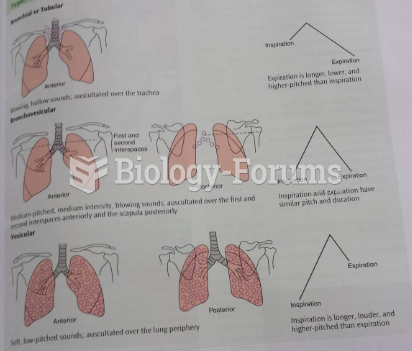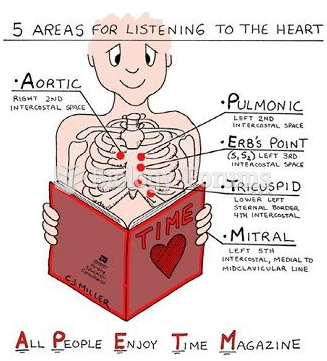|
|
|
There are 20 feet of blood vessels in each square inch of human skin.
A seasonal flu vaccine is the best way to reduce the chances you will get seasonal influenza and spread it to others.
Historic treatments for rheumatoid arthritis have included gold salts, acupuncture, a diet consisting of apples or rhubarb, nutmeg, nettles, bee venom, bracelets made of copper, prayer, rest, tooth extractions, fasting, honey, vitamins, insulin, snow collected on Christmas, magnets, and electric convulsion therapy.
The top five reasons that children stay home from school are as follows: colds, stomach flu (gastroenteritis), ear infection (otitis media), pink eye (conjunctivitis), and sore throat.
Illicit drug use costs the United States approximately $181 billion every year.







